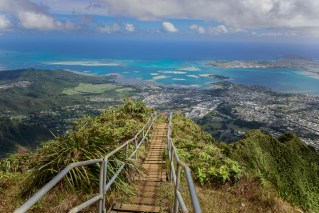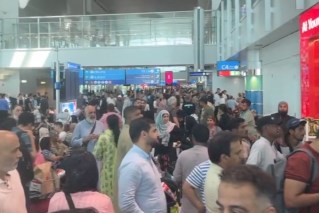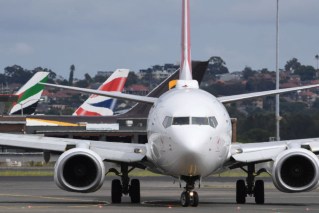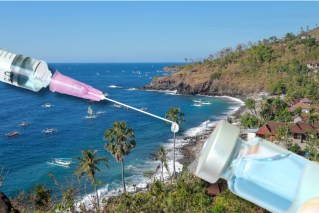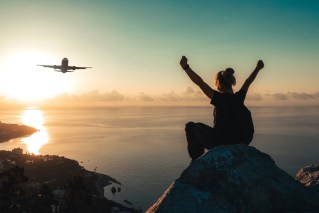How overseas travel may change after the coronavirus pandemic

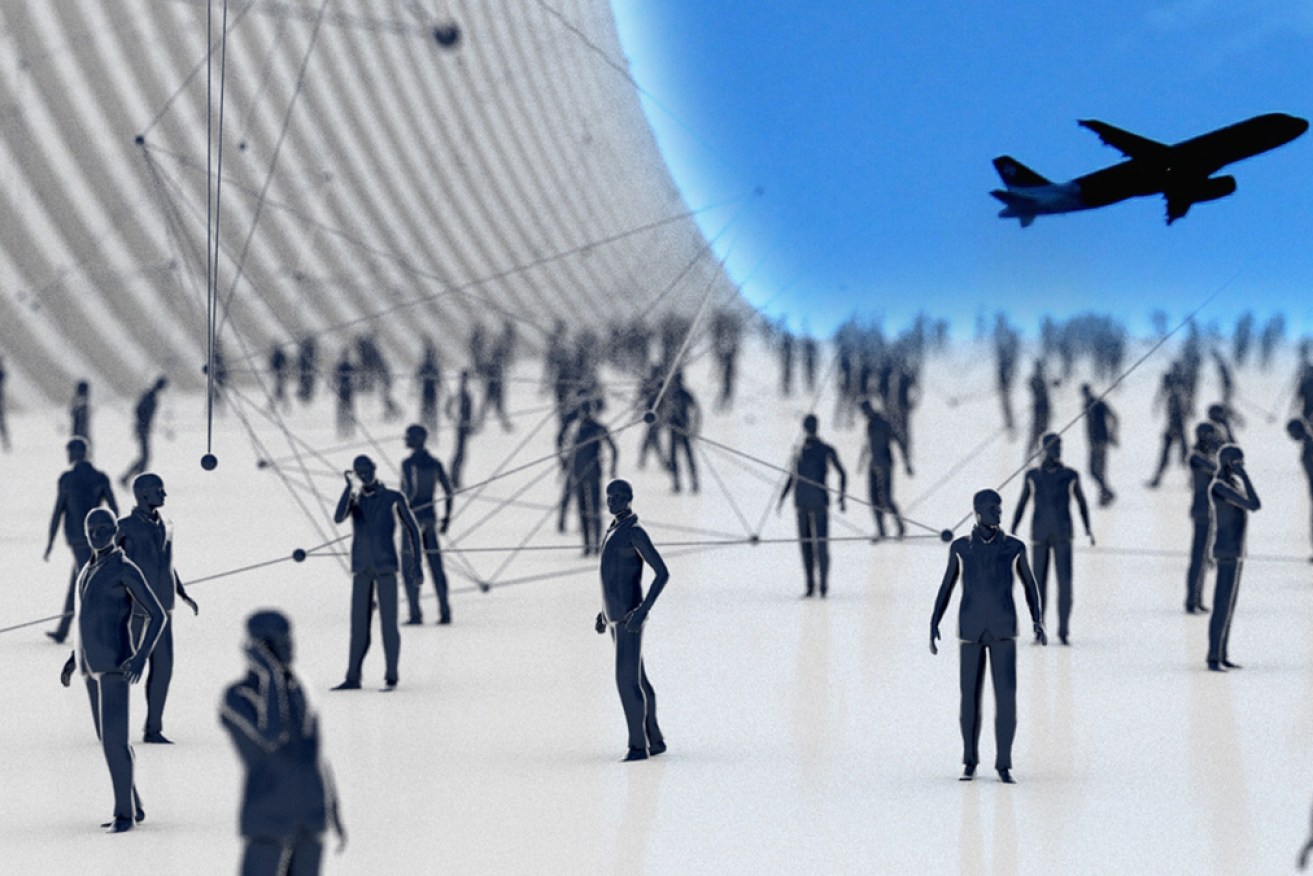
International travel is set to change forever after the coronavirus pandemic. Photo: TND
Mandatory masks in airports, full-body disinfectant booths and permanent social distancing requirements.
These measures could be the future of travel in a post-pandemic world.
Although it’s far too early to plan a holiday yet, when we finally get the chance to travel overseas – likely to New Zealand first – our experience at the airport is going to look very different.
So what procedures might have changed?
Social distancing rules will remain in place at many international airports – even after the coronavirus pandemic is over.
This means keeping a safe distance of at least 1.5 metres from other travellers at all times (excluding household members).
At Melbourne Airport, dozens of signs and foot markers promoting social distancing have been distributed around domestic and international terminals.
In some areas, seating has been removed so people can’t sit too close together, and staff conduct regular patrols to make sure all travellers are complying.
PA announcements regularly remind travellers of coronavirus safety precautions, and thorough cleaning has ramped up dramatically.
A Melbourne Airport spokeswoman confirmed to The New Daily that these extra safety measures won’t change any time soon.
Longer wait times
Passengers ought to prepare for longer wait times due to compulsory health screenings, said Intrepid Travel’s chief commercial officer Brett Mitchell.
“I expect it’ll be a bit difficult and painful initially at airports, but I’m hopeful they will find innovative ways to keep people’s distance and time to a minimum,” Mr Mitchell told The New Daily.
He predicted automation would be used to fast-track check-ins and manage traffic flow, as well as limit face-to-face interaction.
Immunity passports
Some countries like the United Kingdom have been toying with the idea of issuing ‘immunity passports’ to people who have recovered from the coronavirus.
Although there is no proof yet that survivors are protected from being infected by COVID-19 a second time, the concept is gaining popularity worldwide.
Certificates dubbed ‘immunity passports’ would grant survivors the freedom to work, travel and visit family and friends.
It is possible that people who have immunity passports will be required to present them at international airports.
Sophisticated health screenings
To help speed up health screenings, health authorities at Hong Kong International Airport are already testing a full-body walk-in disinfectant booth.
After a temperature scan, passengers will be required to step inside a human-sized machine for 40 seconds.

Hong Kong’s CLeanTech machine acts as a full-body disinfectant, killing bacteria on people’s bodies and clothing. Photo: CLeanTech
The airport claims the device will use an antimicrobial coating on the interior surface and use sanitising spray for “instant disinfection”.
Hong Kong is also trialling cleaning robots that move around zapping and killing microbes with ultraviolet light.
Mandatory face masks
Although health experts have cast doubt on whether face masks are effective at staving off the virus, a growing number of international airlines are considering making them compulsory for passengers.
Canada has insisted all passengers must carry a face covering for their mouth and nose, though it is not compulsory to wear it during the entire journey.
Major US and British airlines, as well as others around the world, are making masks mandatory for passengers and crew when they restart their flights.
Keeping it close to home
As coronavirus restrictions ease around the country, domestic travel is going to boom, said Qantas CEO Alan Joyce.
“We have to be careful not to take the brakes off too early, but restrictions on domestic travel are likely to lift well before international travel,” Mr Joyce said.
“That’s great news for our local tourism industry, with more people holidaying in Australia to start with.”
Once our international borders are opened, international travel to Asian countries like Vietnam or Indonesia will likely rise ahead of Europe or the United States.
Mr Mitchell said he expected Australians would feel more comfortable about jumping on a seven-hour flight to Asia, as opposed to a long-haul flight of 21 hours.
“We’ve got a lot of passengers wanting to rebook with (Intrepid) for 2021, and where previously they had Europe or Morocco on the cards, they’re now looking to rebook a trip closer to home,” he said.

